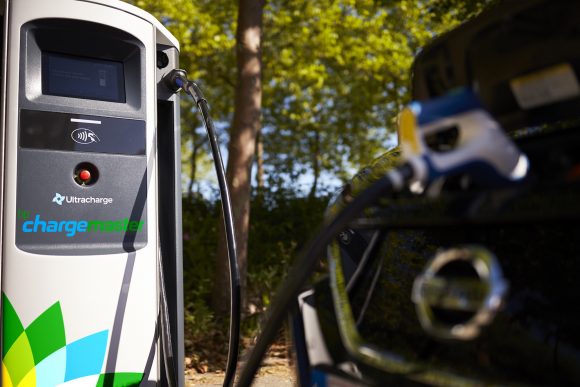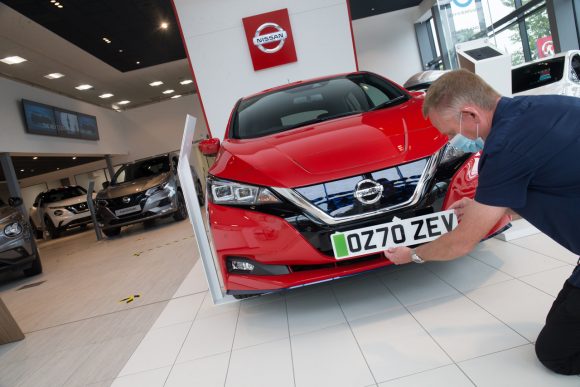Petrol giant BP has joined calls to ban petrol and diesel cars from UK roads as soon as 2030 in favour of electric cars.
The oil company’s statement comes as the government is said to be considering proposals to add £1,500 to the cost of conventionally powered cars to subsidise the cost of EVs.
BP, which is rapidly installing electric vehicle charge points on its forecourts across the country, said the ban ‘can and should be brought in sooner’.
Car Dealer reported earlier this month that the government was seriously considering bringing the ban forward to 2030 with hybrid vehicle sales outlawed just five years after that.
Bernard Looney, BP’s chief executive, told The Times: ‘Whether that is 2035, 2032 or 2030, we are up for it — and, importantly, up for the measures and supporting policies to boost electrification and hydrogen in transport that would make it possible.’
BP already operates 7,000 electric vehicle charge points in the UK and is planning to install more than 70,000 across the world by 2030.
The oil company has been diversifying and increasing its investment in green energy.
BP is the second oil firm to back calls to ban combustion engined cars by 2030 with Royal Dutch Shell’s chairwoman saying banning them by 2030 was the ‘right policy’.

The bold statements from two companies that generate billions in profits from the sale of fuel comes as the car industry embarks on a stark change in direction.
EV sales are rapidly growing as many spent lockdown researching greener alternatives for their cars and the number of electric vehicles on sale rapidly increases.
Some five per cent of sales in August were electric cars, a small percentage, but one that’s growing.
A £1,500 levy on petrol and diesel cars – dubbed a ‘feebate’ system – would aim to make electric cars cheaper and is one of the ideas in a report commissioned by the Department for Transport.
Other recommendations in the report include forcing all petrol stations to install charging points, giving government departments incentives to buy electric car fleets and rebranding support for electric car charging as ‘free fuel’.
Mike Hawes, chief executive of the SMMT, said: ‘We need positive measures, not those that penalise consumers who cannot yet afford the latest electric technology, do not have adequate charging facilities, or for whom driving requirements are not suited to electrification.
‘To do otherwise could risk stalling fleet renewal and delaying environmental improvements by leaving them with no alternative but to keep their older vehicle for longer.’
Other proposals to encourage electric vehicle take up include car parking spaces being painted green.
Transport Secretary Grant Shapps has said local authorities could be given guidance on ways of highlighting dedicated parking spots for greener cars.

Green number plates will soon identify fully electric cars
Other potential measures to encourage people to make the switch to EVs include installing more charge points at supermarkets and tourist sites, and developing batteries that can charge in six minutes.
Shapps, who owns an EV, said: ‘Whether you’re taking a trip with the family or commuting to work, with the wide range of models at competitive prices it is now more cost-effective and convenient than ever to drive and charge an electric vehicle.
‘This, together with our continued support for R&D, will see talented UK-based SMEs flourish, as well as more than 6,000 skilled jobs created up and down the country.’
- 150th Car Dealer Mag, designed for digital – Read it for free here
- Have you nominated your dealership for a Used Car Award? – Do it here
- Join our breaking news WhatsApp group – Click here to join now


































